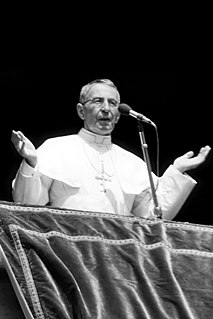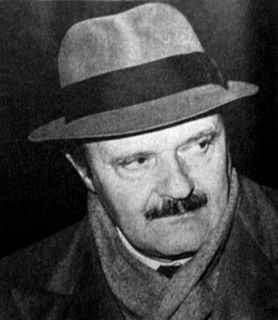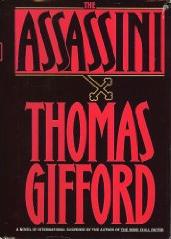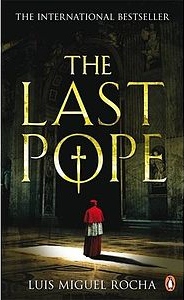
In God's Name: An Investigation into the Murder of Pope John Paul I is a book by David A. Yallop about the death of Pope John Paul I. It was published in 1984 by Bantam Books.

In God's Name: An Investigation into the Murder of Pope John Paul I is a book by David A. Yallop about the death of Pope John Paul I. It was published in 1984 by Bantam Books.
Yallop proposes the theory that the pope was in "potential danger" because of corruption in the Istituto per le Opere di Religione (IOR, Institute of Religious Works, the Vatican's financial institution, commonly known as the Vatican Bank), which owned many shares in Banco Ambrosiano. The Vatican Bank lost about a quarter of a billion US dollars.

Pope John Paul II was the head of the Catholic Church and sovereign of the Vatican City State from 1978 until his death in 2005. He was elected pope by the second papal conclave of 1978, which was called after John Paul I, who had been elected in August to succeed Pope Paul VI, died after 33 days. Cardinal Wojtyła was elected on the third day of the conclave and adopted the name of his predecessor in tribute to him. Born in Poland, John Paul II was the first non-Italian pope since Adrian VI in the 16th century and the second-longest-serving pope in modern history.

Pope John Paul I was head of the Catholic Church and sovereign of the Vatican City from 26 August 1978 to his death 33 days later. His reign is among the shortest in papal history, resulting in the most recent year of three popes and the first to occur since 1605. John Paul I remains the most recent Italian-born pope, the last in a succession of such popes that started with Clement VII in 1523.

Roberto Calvi was an Italian banker, dubbed "God's Banker" by the press because of his close association with the Holy See. He was a native of Milan and was Chairman of Banco Ambrosiano, which collapsed in one of Italy's biggest political scandals.
Banco Ambrosiano was an Italian bank that collapsed in 1982. At the centre of the bank's failure was its chairman, Roberto Calvi, and his membership in the illegal former Masonic Lodge Propaganda Due. The Institute for the Works of Religion, commonly known as the Vatican Bank, was Banco Ambrosiano's main shareholder. The Vatican Bank was also accused of funnelling covert United States funds to the Polish trade union Solidarity and to the Contras through Banco Ambrosiano.

The Institute for the Works of Religion, commonly known as the Vatican Bank, is a financial institution situated inside Vatican City and run by a Board of Superintendence which reports to a Commission of Cardinals and the Pope. It is not a private bank, as there are no owners or shareholders, but it has been established in the form of a juridical canonical foundation, pursuant to its Statutes. Since 9 July 2014, its President is Jean-Baptiste de Franssu. The IOR is regulated by the Vatican's financial supervisory body AIF.
David Anthony Yallop was a British author who wrote chiefly about unsolved crimes. In the 1970s he contributed scripts for a number of BBC comedy shows. In the same decade he also wrote 10 episodes for the ITV court drama, Crown Court.
Malachi Brendan Martin, also known under the pseudonym of Michael Serafian, was an Irish-born American Traditionalist Catholic priest, biblical archaeologist, exorcist, palaeographer, professor, and prolific writer on the Roman Catholic Church.

The August 1978 papal conclave, the first of the two conclaves held that year, was convoked after the death of Pope Paul VI on 6 August 1978 at Castel Gandolfo. After the cardinal electors assembled in Rome, they elected Cardinal Albino Luciani, Patriarch of Venice, as the new pope on the fourth ballot. He accepted the election and took the name of John Paul I.

Paul Marcinkus, GCOIH was an American archbishop of the Roman Catholic Church and president of the Vatican Bank from 1971 to 1989.

Michele Sindona was an Italian banker and convicted felon. Known in banking circles as "The Shark", Sindona was a member of Propaganda Due (#0501), a secret lodge of Italian Freemasonry, and had clear connections to the Sicilian Mafia. He was fatally poisoned in prison while serving a life sentence for the murder of lawyer Giorgio Ambrosoli.

Antonio Samorè was an Italian Cardinal of the Catholic Church. He was elevated to the cardinalate in 1967.
Ugo Poletti was an Italian Cardinal of the Roman Catholic Church who served as Vicar General of Rome from 1973 to 1991, and was elevated to the cardinalate in 1973.

Cardinal Lamberto is a fictional character appearing in the 1990 film The Godfather Part III. He is portrayed by Italian actor Raf Vallone.

Pavol Mária Hnilica, S.J. was a Slovak prelate of the Catholic Church who served as a titular bishop of Rusadir from 1964 until his death in 2006.

Pope John Paul I died suddenly in September 1978, 33 days after his election. Following contradictory reports about the circumstances of his death and apparent anomalies about the issuing of the death certificate and other procedures, several conspiracy theories have gained currency.

The Assassini is a 1990 thriller novel by American author Thomas Gifford, published by Bantam Books.

Vatican conspiracy theories are conspiracy theories that concern the Pope or the Roman Catholic Church. A majority of the theories allege that the Church and its representatives are secretly controlling secular society with a Satanic agenda for global domination.

The Last Pope is a novel by Portuguese author Luís Miguel Rocha, released in 2006.
The moral theology of Pope John Paul I has been openly debated, particularly as regards his expressed opinions on Humanae Vitae, artificial insemination and homosexuality, which feature significantly in Pope John Paul I conspiracy theories.
The Catholic Church has been criticised in fiction, such as literature, film and television. Polemics have also been written on the Church and its practices. Some examples are the anti-Catholic stereotypes that filled Gothic fiction of Anglican England, the films of Luis Buñuel who had his issues with the Church in Spain, the humor of some US television pundits like Rosie O'Donnell, and the rhetoric of some fundamentalist preachers. Since the Reformation sexual immorality by individuals in the Catholic church has been fertile ground for criticism, with biased coverage evident in media coverage of abuse cases.